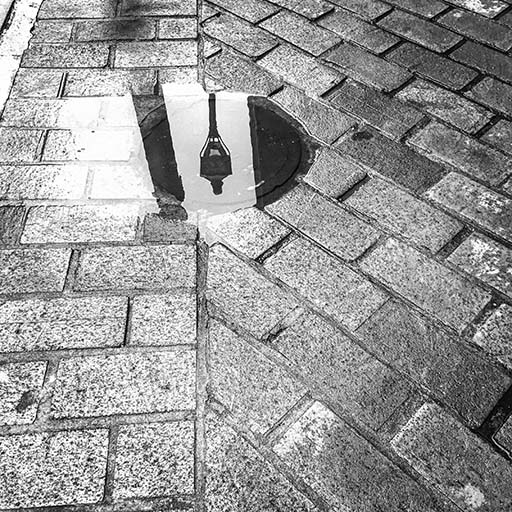
Queued up in the vestibule of a centuries-old New Orleans gallery, I sank my arm into my messenger bag. Fishing for my wallet, I asked about admission. Behind a marble counter, a gentleman, Black like me, attired in an oyster-gray, three-piece suit, shook his head, then followed brightly with, “Just need your zip code.”
I recited the numbers. The five crisp digits rang out in the chilly, high-ceilinged room. I waited for proof of admission—a sticker, a badge—a token to sanction my presence, but instead, the gentleman passed something unexpected across the brief distance separating us.
“You’re one of those Great Migration families.”
It wasn’t a question. It was an appraisal.
What did he just say?
What does that even mean?
I didn’t detect any trace of acid in his tone, no shade or attitude. His smile was easy, if quick; his body fluid. He’d only made an assessment, articulated a fact. Then added: “Californi-a,” breaking the last syllable into segments, a flourish like filigree.
But that “fact” knocked words out of me. I felt spreading pins and needles of something akin to guilt. I didn’t know if I should laugh, or protest, or deflect, or . . .
Just what did he see?
*
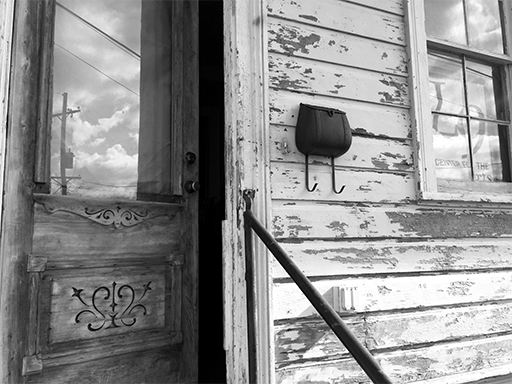
For almost a decade now, I’ve been flying back into the cradle that holds generations of my maternal family’s memories. I’ve sat in the icy quiet of Louisiana archives, tracing their trail in census rolls, the city directory, and, with less success, in telephone books, until they vanish. By the late 1940s, the family story shifts, redirects, when my great aunt and uncle break that trailing branch and resettle in California: One branch bends its way to Oakland and the other to Los Angeles—both journeys intended as end-of-the line escape.
Though I’ve never lived in New Orleans, over the last few years, these visits extend, first by hours, then by days, then by weeks.
I now discern a pattern.
Day one is an exhale.
Day two is a syncing up.
Time is ahead of where I left, but in its own signature.
Somewhere along the way, I shed one me for another. Not in airspace over the Mississippi River or Lake Pontchartrain as the jet makes its descent, but someplace less romantic. Perhaps it happens as the airport jitney drags across the interstate, rattling over the graveyards, or while listening with a musician friend to a crackling Johnny Hodges LP on a Bywater rooftop, watching the winter sky take on a liquid iridescence, or late evening, walking along Esplanade with a tangle of friends I’ve fastened together, some so freshly acquired we still feel a need to fill up all silence with avid chatter.
It’s a transformation that I never discern with my own eyes, but mirrored in the eyes of others: It speaks back to me in a glance or a question. Somewhere in the streets, when I’m out wandering beyond the tourist maps’ borders, I shed Pacific Time for Central. It is more than resetting a clock. Something shifts and people on whom I’ve never laid eyes think they know me: They leap into conversation in the middle of a thought, as if the circle from late last night needed to be closed. “You forgot to holla at me!” They’ll call me by a name that isn’t my own but with so much soft familiarity I don’t have the breath to correct them—something old-fashioned that feels as if it should be printed tenderly beneath a sepia pocket portrait in someone’s tattered family album. They may ask me questions or directions in a rapid-fire New Orleans ornateness that I haven’t heard since my grandfather left me in form but not in spirit. When I look up and, without hesitation, offer a confident answer, I know I have broken away: I’ve escaped the place that I call home, and I sink into the place that calls me home.
This reclamation has been important for reasons that, at first, I didn’t know I needed to enumerate—namely for myself. I had been away from Louisiana, the storied ground of many generations of my family for more years than I could track, out of a desire to avoid melancholy: My grandparents gone,; my mother gone, New Orleans was, however, a place that has shaped me. But with each re-entry, more questions formed about belonging, about the possibility of who I’d be here. Which place is home? Which one is “roots”? Which one feels most part of me?
The gallery transaction didn’t require legal tender, but it did extract a cost. In that brief exchange, decades of sealed-off secrets silently passed between us—the desires of those who ventured out, and the dedication of those who tended to the rituals and memories. It was as if a door to a long-locked room flew open only to shut tight again. I glimpsed something that maybe I wasn’t meant to see. His sentence—in dual meanings of that word—hovered over me for hours, for days—now months.
*
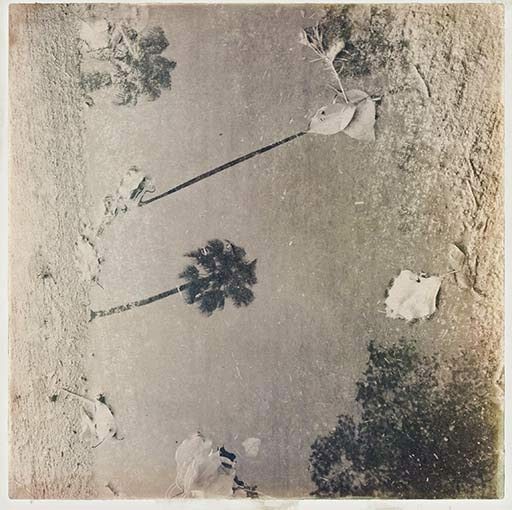
I know that my family’s piece-by-piece uprooting was an escape, though they might not have called it such. In small, verse-like dalliances that grew into long, extended chapters, those early trips west were fact-gathering expeditions. In a slow, devotional fashion, my family made their migration—from New Orleans to the Pacific Coast, lifted on one of the largest waves of the Great Migration beginning in the late 1940s—my great uncle, my great aunt, my mother, my great grandmother, my grandmother, in that order, packed what they needed and, as I do as a writer, struck out a ragged, displeasing line and began to write another.
How did California come to occupy their minds? Who first saw the promise in it?
I know my great uncle had it seen up-close on his railroad job as a Pullman porter. He brought those glimpses home to New Orleans, shared them as verbal snapshots, passing them around the dinner table. It helped to have something of a picture—some sort of backdrop—when you dreamt up your new start, your pocket of peace.
What are the stories told about the people who leave? Are they brave or are they deserters? Are they heroes or are they scoundrels? Hearing the gentleman in the gallery let me know that there were indeed conversations had, judgments pronounced, and resentments nursed in some corners. Did people still hold antique grudges?
If our home folks felt abandoned, that line of cant—as my Louisiana relatives would label this type of “talk”—didn’t make its way into polite conversation. I do wonder what we are not carrying—upholding— but because of that splintering, I remind myself that these were my mother’s choices, not my own. If she had not liberated herself, who would she have become? I would have been, if I existed all, an entirely different me.
*
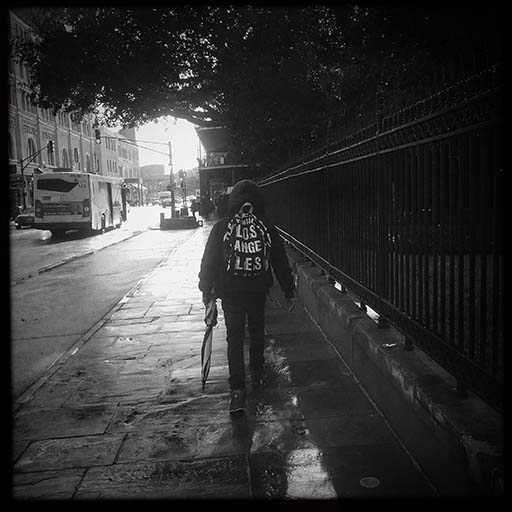
I have been nurturing a tiny seed of thought. Each time I return to Louisiana, it sprouts another tendril of something akin to desire. As that city becomes more alive to me, I’ve begun to feel more distanced from Los Angeles. That distancing has only grown as areas of the city are reworked by thirsty developers with a carelessness re-framed as expediency. With it come lost rituals and stories, yes, but they can only truly be told by those who bore witness, in their pauses and stresses.
The city fades in vividness with those absences, becomes a memento not a map.
I was born and raised in Los Angeles, a region full of exiles: people who had fled atrocities, dictatorships, wars, poisoned waters, natural disasters, slim chances, and the consequences of bad decisions. California wasn’t simply a random dart on a map; it was breath. A chance to stay alive.
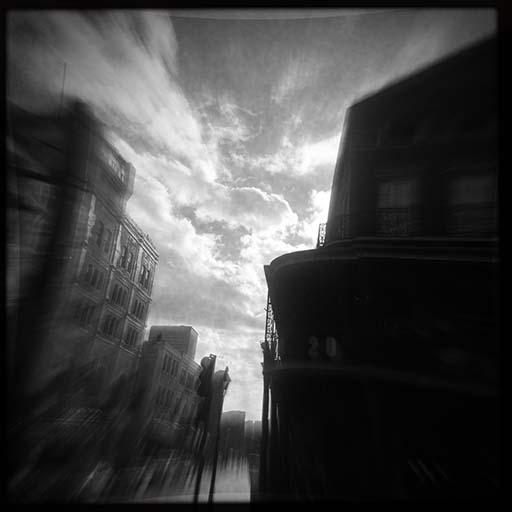
The children I went to school with didn’t speak of their families’ escapes, didn’t shed light on their survival stories or the details of the far-flung homelands I saw in footage on the evening news. Images that reporters spoke over with words like “war torn,” “conflict,” “refugees.” Instead the decisions to flee their countries remained private, that was family business, stories for home—as too were ritual and language. The way students spoke about their lives (or pasts) was swept up in vagueness, half sentences, or silence. They found, or were carelessly sired with, new first names, or nicknames. Eventually many of them eased into those names like a role. They minimized the distance between past and present by editing it or erasing it altogether. They’d created a safe island. They were committed to their pockets of peace.
Very occasionally, and always unexpectedly, something would abrade some wound, spark and spill over. Little Rorschachs. It might be a figure in a poem or a point on the atlas. As clear as yesterday, I remember watching old news footage of the moments leading up to JFK’s assassination in a junior high social studies class. As the Presidential motorcade appears, the somber narration slows, a hero’s story, the music builds. Then, moments before the historic chaos, a girl from a family of exiled Cuban nationals, shoots up her hand. Her mouth opens. At first, nothing comes out. This quiet, retreating girl with the sea-green eyes and blue-black hair shaped into a feathered shag, she is transformed; she has found a voice we’d never heard. “All of this,” she cries. “This. This is why we can’t go home.”
She didn’t finish the story—which, we learn as a class, much later, is about the failed 1961 Bay of Pigs invasion. But I sensed even then that she understood the space as “not safe.” Writing now, I am trying to locate her name amid the messy shelves of my memories, but the fire-light of her rage and pain obliterated it.
*
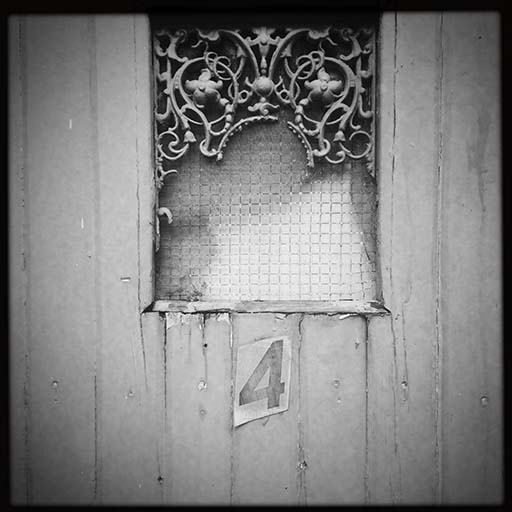
My uncle Harvey didn’t return to the South. Nor did he trot out adjacent emotions. My cousins remember a man of quiet pride. As a rule: “You don’t talk up ghosts. Or the devil.” His silences were deep, calm valleys. Whatever he’d witnessed, he sealed it away, stiffened his back.
In my household, the story was framed differently. My mother spoke frequently and vividly about the home she’d left. It was a full-on romance—joys and heartbreak. But she’d filed away humiliations she couldn’t shake. Feasting bed bugs in the segregated movie balcony seats; the Jim Crow partition on the streetcar. My mother wasn’t a hair-trigger sort, but she spoke her mind with conviction and precision. Would her sharp words and brazenness endanger her? I understood fully why she chose to step out of those pages, but I also knew how much the city still marked her, still prompted flashes of wistfulness. Consequently, unlike my Northern California cousins, I made frequent trips to New Orleans and found my place inside it. She’d escaped the south physically. The leave taking was as clean as it could be, but not complete. She carried that place within her, even in exile. She passed it on to me.
*
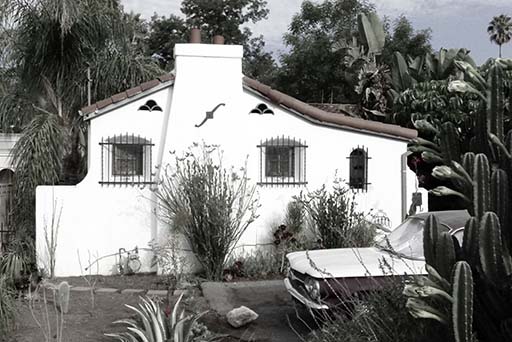
Los Angeles was not my aspiration; it was my inheritance. Currently, a restlessness has descended, locked itself in. Perhaps the man in the oyster-colored suit intuited this. Maybe he knows something about how emotional roots work, how they spread and tangle.
This “flattening” that I currently witness in Los Angeles has to do with another shade of escaping. My parents’ generation pushed into neighborhoods that had been off-limits to people of color, Black people specifically. As white flight found its momentum, the neighborhoods gave themselves over—sometimes with a great, protracted fight, sometimes in a blink.
Early in the 1990s, as a journalist, I began tracking the rising incidents of out-migration or “Black Flight”—residents fleeing these pockets for which we’d fought. I wanted to know where people were heading and why. Some tried again in the desert or the Inland Empire. Others circled back to ancestral homes.
Some continued to chase; others decided to box the devil they knew.
Defiant in spirit, some residents held on, but I used to wonder if, deep down, they suspected that the dream had collapsed around them; that what they were staking claim to was the shadow of something that never quite materialized. Now, though, in clearer moments, I perceive that these men and women, who took unimaginable risks, are simply biding their time, expecting the wager will eventually pay off. Still, I know the question has to circle: Was the severing of the past, this pressing forward, worth it?
In Los Angeles, as these pockets of peace, so hard won, are threatened daily by aggressive erasure, I know that those long timers, who ruminate some evenings in the vestibule of their sun porches amid the night jasmine, are holding on not to hope but to a sense of being victorious. On balmy evenings, I hear the lacework of their Texas, Louisiana, and Mississippi accents dancing across the driveways of their California bungalows. They refuse to be pushed out of the story, pushed out of possibility, pushed out of a narrative that they are still, doggedly, writing, trying to get to the triumphant close.
I too am that figure in the shadows, lingering in the vestibule. Do I step back inside or do I break out? Do I interrupt the story, make a new escape—or, more accurately, a reclamation? Who is that alternative self that others glimpse in passing, and how might she fully exist if I could calibrate it just right? I look to these elders as examples of fortitude, who know how to frame desire. I crave to understand that pull, to want something as much as they wanted California.


